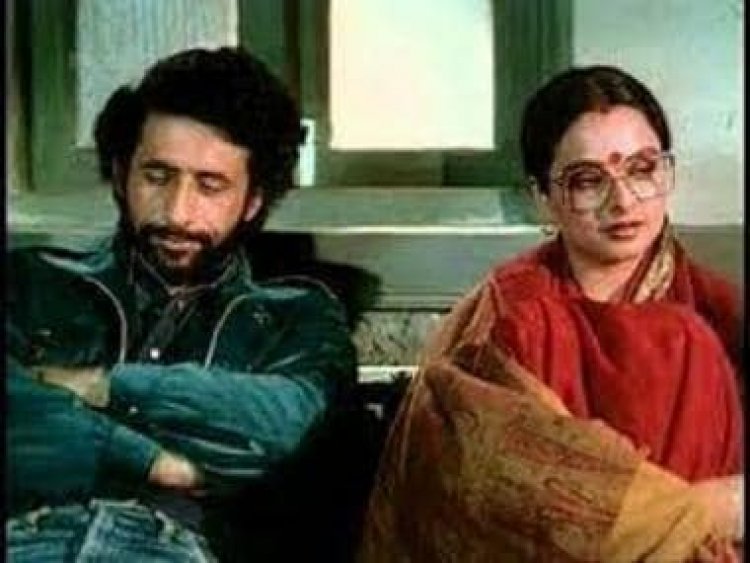Let’s Talk About Women | How Ijaazat subverted the established trope of the ideal wife
Let’s Talk About Women | How Ijaazat subverted the established trope of the ideal wife

In its 134-minute runtime, the two central women of Gulzar’s 1987 film Ijaazat never meet and yet the absence of one continually eclipses the presence of the other. The first has already been everywhere the second tries to reach. So much so that early in their marriage, the wife confesses to her husband, “Everything feels divided in this house. Whatever I try to touch, I feel like it’s someone else’s. Nothing completely feels like my own.”
In Ijaazat, Gulzar captures the heartbreaking elusiveness of a woman feeling othered in a new marriage as hauntingly as Daphne du Maurier did in her 1938 classic Rebecca. Its eponymous character dies before the novel begins and yet she is everywhere; the memory of her more concrete than the physical presence of everyone else alive. Even in her death, Rebecca towers above all, overshadows everything that happens, and lingers in every decision, conversation, confusion. Even in her absence, she is the eye of the storm that relegates everyone else to the periphery. Her absence is so all-consuming that the novel is titled Rebecca but we never get to know the name of the protagonist, the woman who unwittingly makes the mistake of filling in Rebecca’s shoes.
The wife in Ijaazat, Sudha, is faced with the dual challenge of removing all of Maya, her husband Mahendra’s ex, from their matrimonial home and establishing herself there and in his heart. Played by Rekha in a performance that’s as restrained as it’s dignified, Sudha is no ordinary woman. She marries Mahendra despite knowing that his heart belongs to another. A mistake, she later admits. A mistake she ends up paying a hefty price for.
On the surface, Gulzar designs Sudha much like the quintessential Indian wife as was popular in the 1980s. She is sincere, responsible, dutiful, nurturing, empathetic, and sacrificial. But not in a weepy, long-suffering wife kind of way. She’s no Shobha (played by Jaya Bachchan) from Silsila (1981) or Pooja (played by Shabana Azmi) from Arth (1982). Sudha is an independent working woman. Capable of living on her own terms, she doesn’t let circumstances arm-twist her. Even when the going gets tough, she refuses to play the victim. Or the survivor. She’s just a woman who is firmly grounded and deeply aware of her self-worth.
When Naseeruddin Shah’s Mahendra first tells her about his relationship with Maya and asks her to break their engagement so he isn’t faulted for it, she categorically tells him that he’ll have to clean his own mess. Later when Maya begins to fester in their marriage, instead of waiting for him to leave her or to exert herself in a space where she constantly feels like an outsider, she does what few have the gall to do—just pack up and leave. No questions asked. No confrontation. No blame. No bitterness.
Don’t let Sudha’s sarees, red bindis, bangles, gaudy makeup, or her unassuming, desi vibe fool you. She may not ride bikes, smoke cigarettes, or wear chic western clothes, but she is the only one in Ijaazat with any real chutzpah. It may not appear like it, but if you look closely, despite Maya’s histrionics and loud claims, it is Sudha who calls all the shots in the film. Her quiet wisdom and strength of character make Mahendra and Maya look like silly, frivolous children.
In an age when wives begging for their husband’s attention despite all their transgressions was the norm both on screen and in life, Gulzar made Sudha leave Mahendra twice. Despite her precarious position all through the film, she never really waits for him. Not during the five years they were engaged, not in the time they were married, not even after their separation.
When I was growing up, my grandmother used to tell me an allegory. That the railway engine, despite being full of soot and filth, doesn’t arrive at the station unless it’s called several times. Multiple announcements herald its coming and crowds of people swell at the platform, sometimes for hours, eager to board. Only then does it show up. The moral? No matter your class, caste, color, or stature in life, be only where you are wanted. If there is any film wife that personifies this allegory, it’s Sudha. This is essentially why, even after 35 years since its release, Ijaazat continues to be as relevant as ever. Of course, a lot of it also has to do with its timeless music, remarkable acting performances, poignant story, and Gulzar’s poetic direction. But that’s a story for another time.
When not reading books or watching films, Sneha Bengani writes about them. She tweets at @benganiwrites.
Read all the Latest News, Trending News, Cricket News, Bollywood News, India News and Entertainment News here. Follow us on Facebook, Twitter and Instagram.
What's Your Reaction?


























































